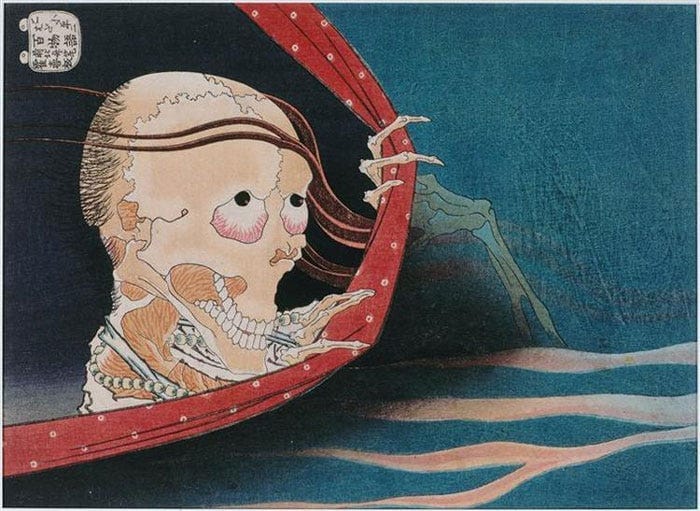The Ex-Factor of Branding
“Branding and/or advertising are not costs — they are investments.”

“Branding and/or advertising are not costs — they are investments.”
You’ve probably heard that or something similar in the past. It makes sense — you’re investing now to reap business benefits in the future. Still, in a world run by CEOs and CFOs, "branding" or other "marketing" lingo will not cut it
Research shows that only 2.6% of the over 65,000 board members researched have managerial-level marketing experience. And in a separate study among board members, only 4% believe that marketing is an important experience to have (versus 47% who believe that finance is).
Ironically, a logical, result-driven mindset should help marketers. Boards with marketing-experienced members tend to have better total shareholder returns (a 3-percentage-point increase), especially when the firm is in the midst of a market share decline.
In the words of one of the authors of the research, Kimberly A. Whitler, “marketers are uniquely trained to understand the consumer, competitor, and external environment and translate this insight into demand-generating growth.”
Wanna change the game? Reframe
If the evidence is on the side of marketers, the issue has to be about the presentation of the evidence.
The marketing toolkit is very ample, but I want to circle back to the idea of branding and/or advertising not being costs but investments.
Saying the return on investment will come as “awareness,” “fame,” “positive brand associations,” or “mental availability”? Tough sell. On the other hand, “sales,” “sustained pricing power,” or “stock price”? That’s more like it.
Words matter too — even “investment” is too vague. But "CapEx"? That sets different expectations. So let’s get into this. And please bear with my Google research and college education in Finance from millennia ago.
Brand Building Advertising Is CapEx; Performance Advertising Is OpEx
CapEx stands for “Capital Expenditures” and refers to investments made to acquire, improve, or maintain long-term assets (i.e., buildings, machinery, land…). While typically tied to physical assets, CapEx is also about time — the long-lasting nature of the asset.
A brand, although intangible, is a long-lasting asset. It’s improved and maintained throughout the years, providing benefits over an extended period and significantly affecting future growth and profitability. Brand is equity.
James Hurman’s elegant definition of Future Demand and Les Binet’s analysis of how brand protects or generates pricing power are both crucial here. Brand-building advertising, done right, builds this intangible, long-lasting asset.
Operating expenses (OpEx), on the other hand, cover day-to-day expenses that keep the business running, typically with a useful life of one year or less. If you think about it, we can stretch this definition to performance marketing — it is the lifeblood that keeps pumping everyday sales and short-term revenue for the maintenance of the business.
So both have different roles to play and must be interpreted as such: brand building is CapEx, building a long-term asset that growth and profitability over time, and performance is OpEx, an always-on, keep-the-business running-expense to harvest bottom-of-the-funnel conversion.
Financial Analysts Support Long-Term Brand Investment
Interestingly, financial analysts increasingly recognize the value of brand-building. In the IPA/Brand Finance Investment Analyst Survey, 79% of analysts cited brand strength and marketing as the most frequently cited factor when appraising companies. More analysts see advertising as an investment (37%) than as a cost (24%).
Moreover, analysts attribute marketing’s greatest contributions to profit margins (77%) and sales volume (71%), though they see less impact on premium pricing (54%) and share price (44%). Importantly, 90% of analysts believe marketing expenditures should be treated as CapEx, either fully (56%) or part of the time (33%).
Conclusion
Perhaps it’s time to rethink how we talk about advertising. Framing brand-building as CapEx and performance marketing as OpEx might resonate better with financially-minded decision-makers. After all, it’s easier to see the value when we speak the language. The numbers seem to back it up, so maybe it’s worth a shot.
Now, as for the implications of this on taxes and depreciation? I would have to be born again to compute that; leave it to the CapExperts and OpExperts out there.
References:
1. Kimberly Whitler’s Research on Marketers in Boardrooms
Why Few Marketers Are Invited to Join Boards of Directors
2. CapEx vs. OpEx Definitions
Investopedia — Capital Expenditure
Investopedia — Operating Expenses
3. IPA/Brand Finance Investment Analyst Survey Findings
IPA — Investment Analyst Survey
4. James Hurman on Future Demand
5. Les Binet’s Research on Brand Building and Pricing Power



